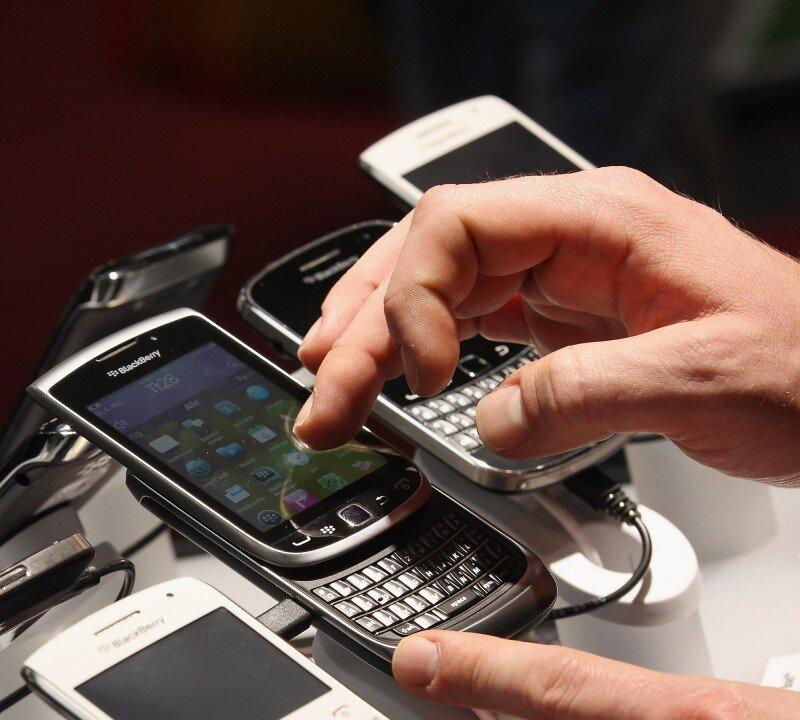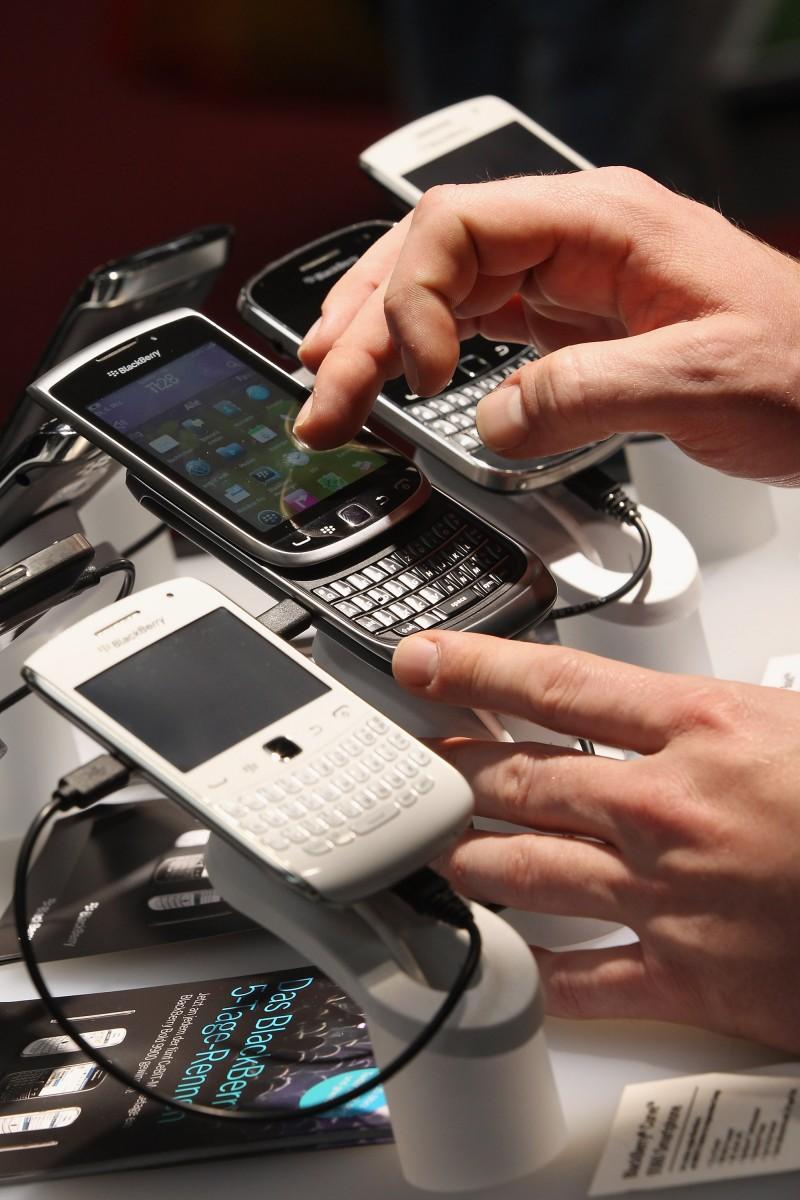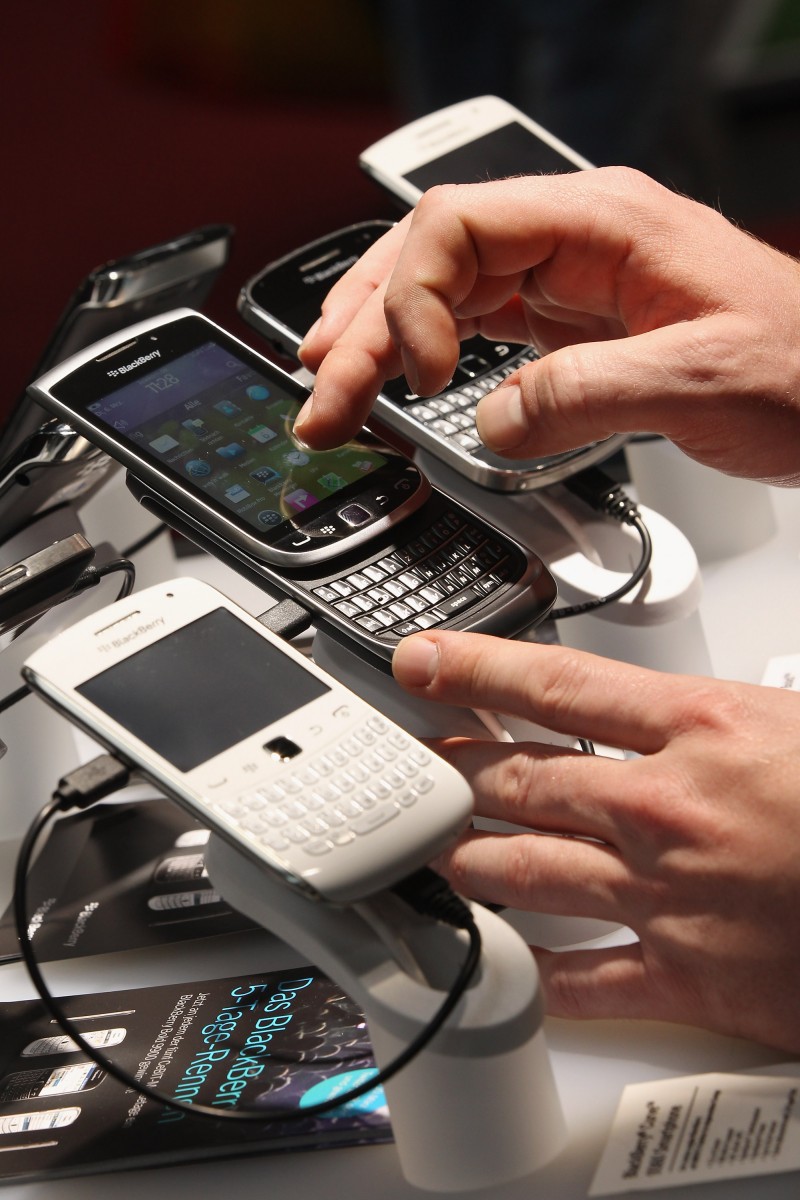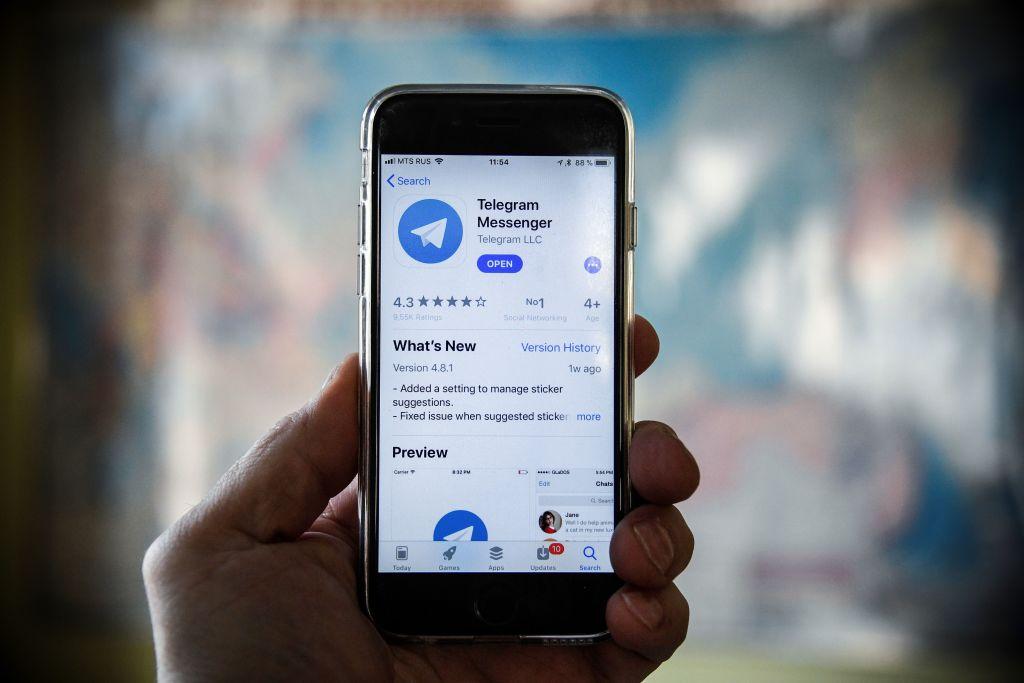RIM Faces Tough Decisions
The once high-flying Canadian BlackBerry maker Research In Motion Ltd. (RIM) has few options left as the company announced a delay on its upcoming BlackBerry 10 (BB10) operating system, following another dismal quarterly results last week.

Visitors try out BlackBerry smartphones at the Blackberry stand at the CeBIT 2012 technology trade fair on March 6 in Hanover, Germany. BlackBerry maker Research In Motion last week reported weaker-than-expected quarterly earnings. Sean Gallup/Getty Images
|Updated:





